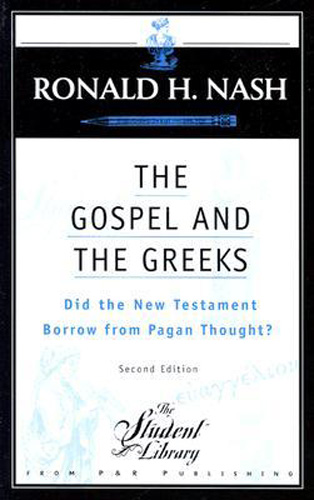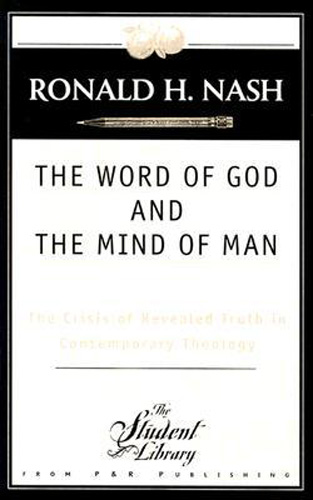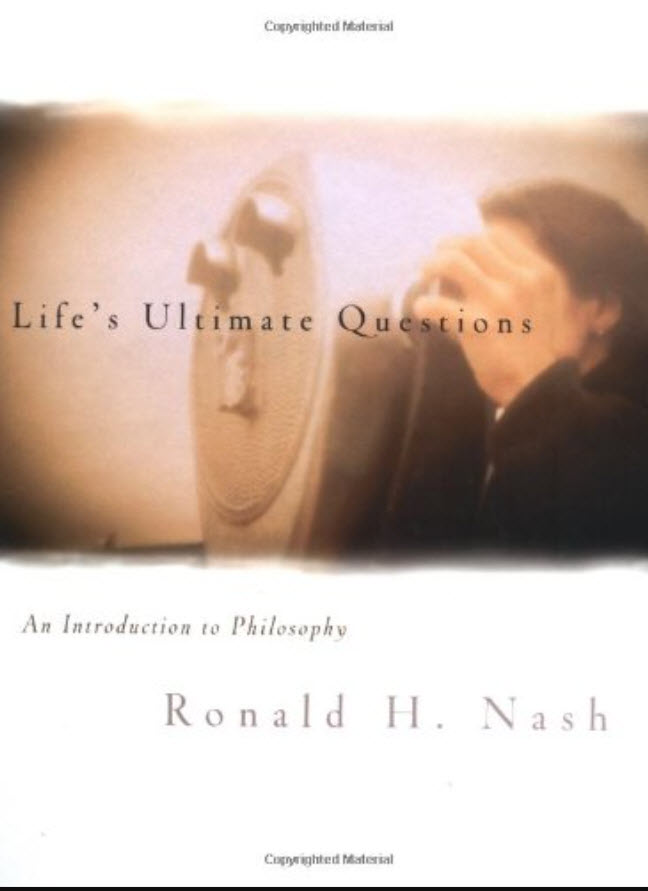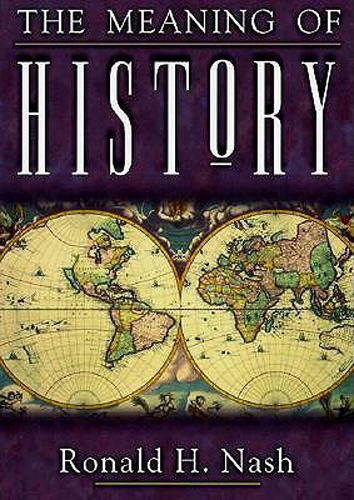History of Philosophy and Christian Thought - Lesson 33
Knowledge
In Augustine's theory of knowledge, he says that eternal reason and human reason are two different levels of reason.

Knowledge
Augustinian Philosophy
Part 9
IX. Theory of Knowledge
A. Downward Path - Becoming
1. God
2. Soul
3. Bodies
B. Levels of Reason
1. Eternal Reason
2. Human Reason
a. Higher Reason - Wisdom
b. Lower Reason - Knowledge
C. Upward Path - Knowing
1. Sensation
2. Cogitation
3. Intellection
Introduction
0% Complete- 0% Complete
Thales and Anaximander were two philosophers in the sixth century BC that lived in Miletus.
0% Complete - 0% Complete
Heraclitus and Pythagoras lived into the 5th century BC.
0% Complete - 0% Complete
Any worldview addresses the subjects of God, ultimate reality, human knowledge, ethics and human persons.
0% Complete - 0% Complete
Fundamental beliefs of a naturalistic worldview is that nothing exists outside the physical universe and that all things evolved.
0% Complete - 0% Complete
Plato was a student of Socrates and lived into the fourth century BC. He opposed hedonism, empiricism, relativism, materialism, atheism and naturalism.
0% Complete - 0% Complete
Plato described the universe as having three levels: the world of particulars, the world of forms, and the form of the good.
0% Complete - 0% Complete
Plato's view of the universe was dualistic.
0% Complete - 0% Complete
One of Plato's fundamental arguments is that the human soul is immortal.
0% Complete - 0% Complete
Evaluation of Plato's arguments and comparison of Plato's philosophy with biblical theology.
0% Complete - 0% Complete
Empiricism teaches that all human knowledge arises from sense experience. Rationalism teaches that some human knowledge does not arise from sense. experience
0% Complete - 0% Complete
Aristotle was a student of Plato and lived in the fourth century BC.
0% Complete - 0% Complete
Aristotle rejected Plato's doctrine of two worlds.
0% Complete - 0% Complete
Discussion of Aristotelian philosophy as it relates to the incarnation.
0% Complete - 0% Complete
Aristotle's philosophy as it relates to attributes of God and fundamental assumptions about psychology.
0% Complete - 0% Complete
Aristotle made a distinction between passive intellect and active intellect.
0% Complete - 0% Complete
Discussion of the strengths and weaknesses of the law of non-contradiction.
0% Complete - 0% Complete
Discussion of the nature and substance of matter.
0% Complete - 0% Complete
Hellenistic philosophy was an approach that was popular from the fourth century BC to the fifth century AD.
0% Complete - 0% Complete
Stoics were determinists who believed in living according to nature.
0% Complete - 0% Complete
Hedonism emphasized pleasure as the greatest good. "Eat, drink and be merry for tomorrow we might be dead."
0% Complete - 0% Complete
Philo's philosophy was based on a synthesis of Stoicism and Platonism.
0% Complete - 0% Complete
Implicit "Logos" Christianity is an underlying theme in the book of Hebrews.
0% Complete - 0% Complete
Plotinus lived in the third century AD and is considered the founder of Neoplatonism.
0% Complete - 0% Complete
Augustine is a Latin church father, is considered by many to be one of the most important figures in the development of Western Christianity.
0% Complete - 0% Complete
Augustine wrote Confessions as an autobiographical work to record his experience as a sinful youth and his experience becoming a follower of Christ.
0% Complete - 0% Complete
Augustine wrote to refute some heresies of the day by focusing on the concepts of faith and reason.
0% Complete - 0% Complete
Augustine writes about the problem of evil and describes evil as the absence of good.
0% Complete - 0% Complete
Augustine writes to refute Pelagianism by focusing on the biblical teaching about sin.
0% Complete - 0% Complete
Augustine writes to refute Donatism.
0% Complete - 0% Complete
The fundamental idea of skepticism is that no one can know anything. Augustine this statement contradicts itself because the skeptic is claiming that you can know that you can't know anything.
0% Complete - 0% Complete
When Augustine wrote "The City of God," he had a linear view of history.
0% Complete - 0% Complete
In Augustine's theory of knowledge, he says that eternal reason and human reason are two different levels of reason.
0% Complete - 0% Complete
Augustine was personally convinced of the importance of divine illumination.
0% Complete - 0% Complete
The intellectual background of Thomas Aquinas was influenced by the discovery of ancient manuscripts, the rise of universities, the rise of religious brotherhoods and the rise of Muslim philosophy.
0% Complete - 0% Complete
Aquinas describes faith as whatever a human can know through special revelation, and reason as whatever a human can know outside of special revelation.
0% Complete - 0% Complete
Aquinas attempts to prove God's existence.
0% Complete Aquinas describes four kinds of law as eternal, divine, natural and positive.
0% Complete- 0% Complete
The rationalists and empiricists set the stage for Kant and other philosophers of the modern era.
0% Complete - 0% Complete
Kant argued that moral requirements are based on a standard of rationality he dubbed the “Categorical Imperative."
0% Complete - 0% Complete
Kants two worlds are the phenomenal world and the noumenal world.
0% Complete - 0% Complete
Discussion of criticisms and questions about Kant's ideas.
0% Complete - 0% Complete
Similarities between Kant's ideas and postmodernism.
0% Complete - 0% Complete
The dialectic is a central idea in Hegel's philosophy.
0% Complete - 0% Complete
Ideally, Marxism begins with class struggle, then revolution, dictatorship of the proletariat, withering away of the state, and a utopian classless society.
0% Complete - 0% Complete
Discussion of four faces of Marxism.
0% Complete - 0% Complete
Nietzsche proclaimed that, "God is dead." His cure was to live life knowing there is no ultimate meaning. Kierkegaard emphasized a worldview based on true faith.
0% Complete
In this class, you will explore the rich history of philosophy and its relationship with Christian thought. The course begins with an introduction to the definition and importance of philosophy in Christian theology. You will then delve into the evolution of philosophical thought from the Pre-Socratic era, through the Classical Greek philosophers, and into the Hellenistic period. As you progress, you will discover how early Christian thought emerged and developed during the Patristic period, with a special focus on Augustine. The class continues with an examination of medieval Christian thinkers, such as Anselm and Thomas Aquinas, and concludes with an analysis of modern philosophers like Descartes, Kant, and Kierkegaard, and their influence on contemporary Christian thought.
Two other books that are recommended reading for this class are Confessions by Augustine and Phaedo by Plato.
Recommended Books
The Gospel and the Greeks: Did the New Testament Borrow from Pagan Thought?
Examines contemporary claims for Christian dependence on Hellenistic philosophy, Greco-Roman mystery religions, and Gnosticism. He finds the case for dependence in the...

The Word of God and the Mind of Man
The last two centuries of Christian theology are the record of an evolving attack on the role of knowledge in the Christian faith. The purpose of this book is to challenge...

Life's Ultimate Questions: An Introduction to Philosophy
Life's Ultimate Questions is unique among introductory philosophy textbooks. By synthesizing three distinct approaches

The Meaning of History
The Meaning of History is a concise look at the meaning of the history of the world from the viewpoints of major historians and philosophers. By examining the individual...

Dr. Ronald Nash
History of Philosophy and Christian Thought
th620-33
Knowledge
Lesson Transcript
[00:00:02] One more thing his theory of knowledge. Fortunately, there is a chart in your chapter on Augustine. Let me tell you what page that's on and if you'll turn. There it is. Page 149 In Life. Solomon Questions. Before I go over this chart and when I'm finished with, that will be finished with Augustine. Keep in mind that Augustine was never a systematic thinker. I've explained this to some of you who are going to write your research papers on Augustine. Augustine never writes one single work in which he summarizes and systematize his beliefs on a particular subject. What you have to do is read hundreds of pages from disconnected works and try to pull all of these insights together into a system. There is a system there. But Augustine never makes it explicit. Now what I give you, and so far as I know it, is my books. They're the only place where you can find this. Lots of people have written books about Augustine, but they don't see this. So I think. Okay, Augustine's theory of knowledge looks like this. And before I draw it any further, let me add one more sentence here. When you understand the system, what Augustine believes about human knowledge, you will see the close, inseparable connection between metaphysics and epistemology. Now, I. I uttered the word metaphysics. I'm going to use a different word here. Ontology. Ontology is a more specialized branch of metaphysics. We're in, but we're in the same territory. Ontology really means the study of being the science, of being of what is okay. Here's epistemology. There is a downward path and an upward path in Augustine. Who some of you were going to say That sounds like plotinus. Well, why shouldn't it? Augustine learned a lot from Plotinus, but it is a downward path and an upward path where the differences with Plotinus are more important than the similarities.
[00:02:18] Okay, this is the downward path of being. These are levels of being, and this is the upward path of knowing. Now, Augustine says there are three levels of being. This with Plotinus, there are big differences here. The highest level of being is God. But this is not the God of Plotinus who was an unknowable one. The God of Augustine is essentially knowable. Nobody could know anything about Plotinus was God, including Plotinus. Anybody can know something about the Christian God. Why? Because He has revealed himself. He reveals himself in nature. Read Romans Chapter one. He reveals himself in his son. Read John chapter one and he reveals himself in Scripture. The Christian God is essentially knowable as opposed to the Plotinus God. The second level of being is the soul. But we're talking here primarily, maybe exclusively about the human soul. We're not animals don't have a soul for August. And then down here you get the level of body and for August and the level of body would include the human body, animal bodies, plant bodies, you know, all that. So there is a vague similarity to plotinus, but not one of derivation. Next point for each level of being, there is a corresponding layer of level of reason. Reason. Augustine. Augustine, remember, did not write Greek. He hated Greek. If he had taken Greek in the summer here, he would have flunked it. Right? Hated Greek. Latin was his language. So whenever Augustine talked about reason, he used the Latin word Rocio. But if Augustine had written in Greek, do you want to know what word he would have used here? It's a word we haven't used in a couple of weeks. He would have used the word log on the Lagos theme. If somebody if if Augustine had been a character in the Dr.
[00:04:53] Zhivago movie that was on TV just this past week, instead of having Lara's theme, they would have had the Lagos theme in Doctor Zhivago. Now there are three levels of Rasi or three levels of reason. At the level of God. There are the rats Raazi on is I turn. I am the eternal reasons. What does that refer to? Plato's forms. And where do Plato's forms exist? They exist in the eternal, unchanging mind of God. Boom! This is the level now. The second level is the level of soul. And here the form of reason is the right. See? Oh, I got to get the right spelling here because. Yeah, the rats c0oi don't put it in the book. Yes, I do. No, I don't. All right, well, I'll give it to you right here. The Raza ominous. The reason of man. The human reason. Only here. Now, there are two levels. There is the higher reason. Now, what would be the other one? What's the other one? Lower dog gone there. Thank you. What a teacher. The lower reason? Yes. Now the higher reason looks upward to God and the world of the forms. You like my body language here? It looks upward to God. And the higher forms, the lower reason looks down to the world of bodies. Now, each of these two levels of reason produce a corresponding kind of awareness. The higher reason produces. And my chart is getting messed up here. It produces copy. That's the Latin word wisdom. But the lower reason dealing as it does with bodies produces ciencia, from which, of course, we get our word science. Okay. So you look upward to God in the forms and you get wisdom. If you look downward to bodies, you get science.
[00:06:53] The NCA down here and the level of body you get Roshi on a seminar. And we're going to make a long story short. There is a there are forms of reason within the world of bodies, and what these rational seeds do is guide the development of bodies according to the ultimate ends and purposes of God. Over here on the upward path of knowing, there are three kinds of vision the lower level of vision corresponding to body it sensation bodily senses. Strictly speaking, this is not knowledge. It may be potential knowledge in the soul or the mind of a human being, but it is not really knowledge. And of course, animals can can have sensations and human beings can have sensation. But that's strictly not knowledge. Then on the next level going up, we have what Augustine calls cogitation. Now let me just utter a sentence and then in two weeks or so will really bring this home. What Augustine calls cogitation is one of the most amazing, incredible developments in human philosophy that no one except you students here now recognize. This is one of the great advances in human philosophy, human knowledge, but nobody knows it happened. What Augustine does here is to really anticipate by hundreds of years the work of the great German philosopher Immanuel Kant. Everything that Carter was trying to establish with his so-called theory, the categories. His critique of pure reason was really developed implicitly. Around 400 A.D. in Augustine's theory of knowledge. Nobody knows that except you. And then finally, the last layer going up is called intellect. The human mind possesses the ability to know the content of God's mind. What we mean here is the specific content in God's mind that is expressed in the forms.
[00:09:13] We can know the equal itself. We can know beauty itself. We can know truth itself. And whenever we know true beauty or to goodness or true truth, we know something about not only the mind of God, but the nature of God. Oh, that's great stuff. And that's where we get wisdom. And this is where we get science right here now, because this is a beginning course. We don't have time to go into all the details. My chapter on Augustine gives you some of those details.